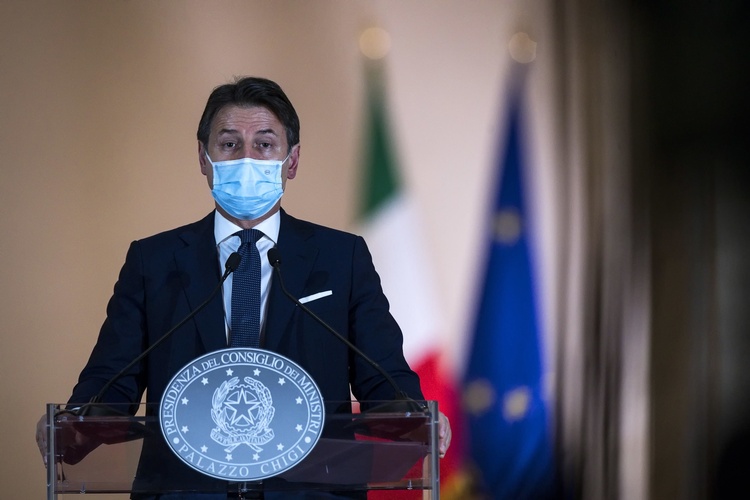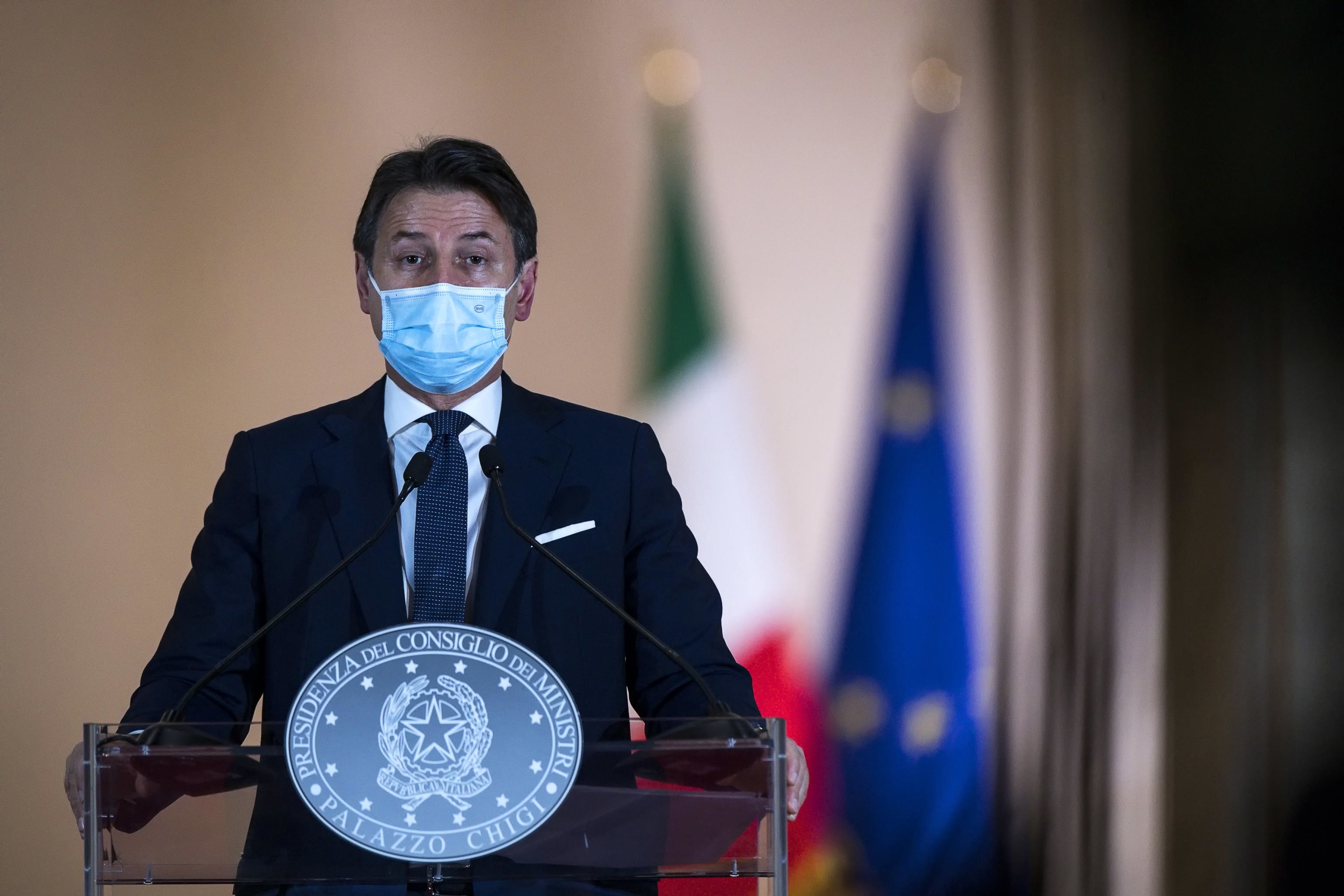The new restrictions come just five days after Italy’s latest decree was signed.
Many new or toughened rules were targeted at stopping crowds from gathering at nightlife spots, and Conte’s government seemed to have resisted pressure to introduce more sweeping measures.
“The strategy is not and cannot be the same as it was in spring,” Conte said in a televised address which began shortly before 10:00 pm.
“We must act, deploying all measures necessary to avert a new generalised lockdown.
“The country cannot afford a new setback which would severely jeopardise the whole economy.”
Under the new rules, mayors have the power to close crowded squares after 9:00 pm.
Large festivals and local village fairs are banned.
Bars and restaurants without table service must close at 6:00 pm (they were made to close at 9:00 pm under the previous decree).
Restaurants and bars which have table service can stay open until midnight, and takeaway service is allowed until midnight, however, food may not be consumed at or outside the restaurant.
Only six people can be seated at a table in restaurants.
The new decree requires high schools to delay the start of the school day until 9:00 am, and allows for some lessons to be moved to the afternoon (many Italian schools are normally only open until lunchtime).
Swimming pools and gyms were warned that if protocols were not followed over the next week, they may face closure.
Hairdressers and beauty salons remain open.
These rules are in addition to the recent new requirement for face masks to be worn in public places – indoors and outdoors – at all times.
In addition to the nationwide rules imposed, strict restrictions have been introduced at a local level in the two worst-hit regions, Lombardy and Campania.
Italy was the first country in Europe to be hit hard by COVID-19 and has the second-highest death toll in the region after Britain, with 36,543 fatalities since the nation’s first cases were recorded in February, according to official figures.
Authorities had managed to get contagion largely under control by the summer thanks to a rigid two-month nationwide lockdown but as a second wave has emerged, they have been forced to introduce new measures.
COVID-related deaths on Sunday increased to 69, up from 47 the day before.
The number of intensive care cases reached 750 on Sunday from 705 on Saturday after hitting a low of around 40 in the second half of July.












